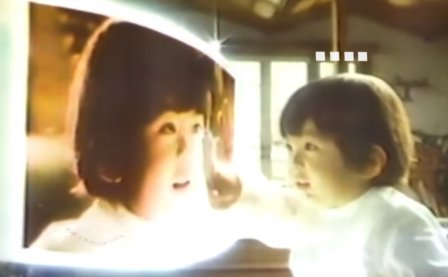It seems remarkable that a genre as stylistically specific as footwork would have continued to splinter off into fresh iterations over the past half-decade after crossing over into the still-left-of-mainstream in the early 2010s with the rise of the late DJ Rashad and other Chicago-based DJs. The biggest influence those musicians bore on the contemporary weird has not so much taken the shape of rhythms and vibes (though it’s possible to trace those types of influences as well) as it has germinated through ideas; namely, the concept of a sampladelic phenomenology suited to the infinitely editable digital era of composition, wherein memetic sound-phrases take on the role of compositional particulate and gesture in place of traditional instrumentation (drums, bass, keys, vocals).
Japanese footwork artists like Foodman and Paisley Parks have pushed this aesthetic to its breaking point and back again over the past few years, eschewing the relatively austere compositional restrictions, polyrhythmic grid-shifting, and improvisational phraseology of its Chicago forebearers in favor of a disorienting, maximalist flurry of samples that would carry the genre away from the dance floor and the act of dancing itself in order to isolate the memetic ontological gesture as a composition technique.
Kent, Ohio-based producer Khaki Blazer continues in the vein of these Japanese artists, using a panoply of deliberately non-smooth samples to initially jar and then to normalize within the listener various states of hypnotic incomprehensibility. “Don’t think,” with its imploring refrain of “Don’t think about it too much,” microcosmically embodies the fucked cartoons that rise to the surface of consciousness on Coca Nara Deezer: grainy natural elements bubble up through a stream of decayed digital trash, like image memes that have been screenshotted and reposted to IG so many times that the words are barely readable and the inexplicably high-contrast shades repel the eye, in effect betraying the imprint of a vast, unspeakable journey through sociality and consciousness itself.
Therein unfolds a topography of anti-signifying with infinite plasticity, iterating through repetitions at various speeds and recombinant rhythmic articulations: the bubble of water in a pipe, a bicycle bell, a bitcrushed android vocal, an ebullient kiddie laugh-track, jungle bird calls, popping bubbles. These elements co-arise with bare footwork drums, corrugated cardboard snares, and low-attack 808 bass, rolling hi-hats that string together forays into various nowheres. It’s kind of like all free-jazz everything; there’s a part of you that’s dancing, but it’s the part of you that’s woven through every object you’ve ever consumed, coveted, ridden, entered, or seen, and it’s difficult to locate within the confines of your actual skin shell.
How to describe this compositional style and its affects? It’s like a collage, but the collage lives inside you, and the individual pieces of the collage have tiny preferences and inner lives of their own. They have relationships with the other pieces characterized by playful, oscillatory conflict — chicanery, gentle trolling, a de-coolification and a smirking at the obvious non-primacy of the constitutive listener-subject. There is a rapid-fire kitsch at play that undermines any lofty concept of iterative computational process that transcends infomatic chaos itself, even as the sound of failed categorization, of excess info that breaks the network, of cluttered design that obscures the grid at times coheres into something resembling gleeful, manic surrender to precarization.
Coca Nara Deezer, as it draws toward an unceremonious close with a penultimate title track, bleats out a grainy, droll square wave that goofily pitches up and layers on itself, like the childish, Crayola equivalent of a tasteful-signifying pitched-up vocal sample on a manicured house track. When BBU declared “Chi don’t dance no more/ All we do is juke,” they must have understood that juke and footwork were more than just a vibe or a subgenre, but a rupture in the way things in our world are arranged. We arrive into this mode when we slip into the infinitely reproducible beige aura of the Khaki Blazer, refracting an ambivalent kaleidoscope where the things that make up the world simultaneously don’t give a shit about us yet don’t mind us joining in to their funhouse play.
More about: Khaki Blazer




